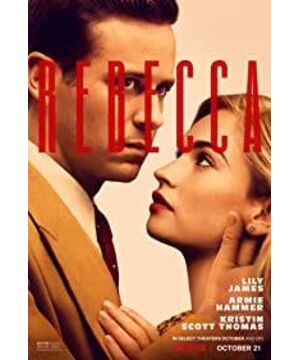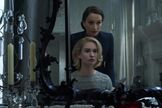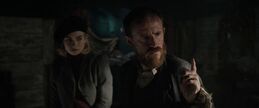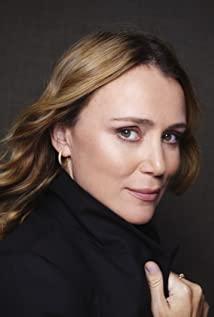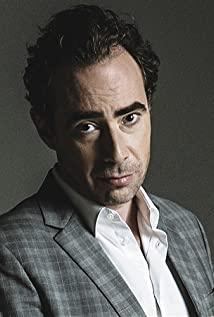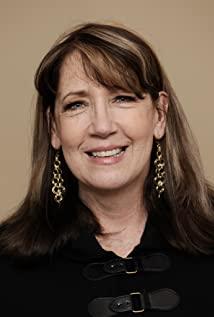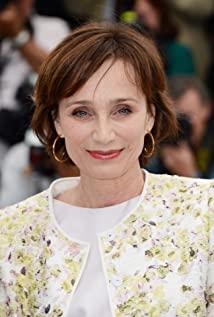Lots of spoiler warnings! ! ! ! !
Since a new film has the name "Butterfly Dream", it must be compared with the Hitchcock version of 1940. It is estimated that the creative team is also aware of this. Soon after the movie was released, imdb related news appeared: In the news released on October 22, 2020, the two leading actors of the new version of "Butterfly Dream" insisted that the movie was not A remake of the Hitchcock edition. More intriguingly, October 22th happened to be the birthday of Ms. Joan Fontaine, the heroine of the Greek version of "Butterfly Dream". Whether it’s a coincidence or not, or whether it’s the director and screenwriter knowing that Hitchcock can’t play but Hitchcock’s attempt to find another way, or the over-confident performance, in short, “This movie is different from the classic version. I hope you don’t get too entangled. The intention of "comparing the differences between the two" is very clear.
After reading it, I also realized that the director and the screenwriter have almost reached the point of "everything is done" in order to get rid of Hitchcock's influence. It seems that everything must be reversed, screwed, and even this series. The act of rebellion and Daphne Du Maurier’s original novel are both offensive-I can understand deliberately adopting different methods in order not to be affected by the classics, but we can't even ignore the original blueprint, right? This directly led to the 2020 version of "Butterfly Dream" completely turned into a street-fighting work that is extremely vulgar and low-level in both emotional and suspenseful expressions, and extremely confusing in character and behavioral logic.
While watching the movie, my brain seemed to keep asking questions. These question marks were so dense that I had to vomit them quickly. Of course, since the creative team has expressed that they do not want to have too much contact with Hitchcock, then we will not mention the 1940 version, and just talk about the original work.
1. Why are the emotional expressions of the male and female protagonists so cheesy?
In this work, the emotional development of the heroine and Derwent is expressed through pure sensuality from beginning to end. It really surprises me. The screenwriter doesn't seem to know how human emotions are expressed, as if love must live by selling sex.
From the very beginning, the heroine couldn’t hide her desperately needy characteristics (when she first met Derwent, she ran back to wipe perfume, found that Derwent’s car contained "love poems" and went through it without authorization, before a certain date It was pointed out by Mrs. Van Hopper that the clothes she wore were too thorough. After going to the beach, she peeled off her clothes and admired the bare back she had been touched.) This made the hostess feel wronged when she heard Mrs. Fan talk about her in the middle of the night. Because her various performances have indeed confirmed that she is a girl desperately trying to hit a high-quality bachelor.
Then came the stage of frequent dating between the hostess and the hostess. Not only did the two have their first skin-to-skin relationship on the beach. Motivation for me to be a secretary?" Under this premise, the term "secretary" seems to have a more vulgar connotation), and even watched "naked" "adult performances" on the beach. So far, the veil has been completely lifted, and the tone of the movie's meat selling has been established. Sure enough, when the protagonist got married and returned to Mandley, his vulgar behaviors increased unabated: the protagonist asked Rebecca in seduction and teasing. So, why would you be frightened when you encounter "adult images" at the beach?), the new clothes the hostess wants to order to match Rebecca are lace underwear, and even lead to the host and Feaver-this is both Rebecca's cousin He is also an important figure in Rebecca’s lover-the direct cause of the conflict is that he tried to seduce the heroine, not to mention that at the end of the original, the male and female mainstreams are in foreign countries, and the life of each other like a guest, but also considered idle. Up.
Some people would say that sex is nothing more than a way of film expression, but the use of too explicit sexual elements in "Butterfly Dreams" is fatal, because it drags down the most basic character arc in the original. Daphne Du Maurier’s original novel is extremely restrained in the grasp of "sexuality", which can be said to be like gold, because the birth of "desire" is the mark of the completion of the heroine's self-growth. In the original book Derwent marries the heroine, what he likes is that the heroine is a young girl student who is innocent, immature, simple, confused, and simple. Therefore, when she proposes to her, she will say: "You won't believe what I say, but I don't May you grow old.” After the twists and turns, the truth was revealed, the male protagonist became vulnerable, and the heroine was forced to grow up to support and save the male protagonist. Only then did the two of them have the first concrete details about kissing. Description: "He was hungry and thirsty. He kissed me desperately and murmured my name." In other words, the completion of the "male and female relationship" and the maturity of the heroine are interrelated. The "girl" has become a "woman", and the "desperate kiss" that represents "sex" and "desire" is an ingenious turning point. However, the body and desire in this work can be said to be full of time from beginning to end, and even Derwent’s feelings about the heroine "a lot of old fashioned" have been transferred to the end, as if he was not lamenting the joy of escaping reality in exchange for too much. Perishable, but to blame Rebecca for delaying him in teasing the young girl. From this movie, I don’t see a girl who is uneasy and eager to become sophisticated and mature in an unfamiliar environment. I only see a woman who deliberately wants to use the most brutal means to compete with her ex-lady and jealous; I also don’t see that girl who is left behind by the past. The bitter, melancholic, heavy, somewhat tragic male protagonist, who is a bit strong in the outside world, only sees a rich boy who is greedy for pleasure and has no character.
2. What is the significance of Rebecca? Is the hostess really afraid of her?
Rebecca is the title role of "Butterfly Dream", and the beauty is that she has never appeared, but has a strong aura that suppresses all roles. However, Rebecca's sense of existence in the new version of "Butterfly Dream" is too weak.
First of all, the male protagonist who is vacationing in Monte Carlo is in a good mood. In the original book, Derwent wanted to escape the past that was shrouded in the shadow of Rebecca by staying away from Mandley, but also because of his "famous" unable to truly give up the Mandley Manor, which represents the face of hereditary aristocracy. His melancholy came mainly from these two. This kind of emotional mutual tearing and entanglement, and consistent, even in the process of falling in love with the heroine, he still kept secret of his past, so from the beginning, the heroine had doubts in his heart. In this work, Mr. Derwent was able to relax and embrace the hostess up the mountain and down to Haiti to swim and have fun rolling on the beach. He also sincerely praised Mandeley as the best place in the world several times without even spending any psychological struggles. Directly revealed to the hostess "I have been here on my honeymoon". It's hard to imagine how deeply Rebecca really hurt Derwent in this state? Furthermore, regardless of Derwent’s forefoot account that he had been here during the honeymoon, the protagonist is not allowed to follow the topic and ask about the logic of his ex-wife’s behavior is unreasonable. The picture arrived is: European seascape in warm colors, calm and calm-since the language of the lens is so gentle and beautiful, then what is the scary quality of this "dead in the sea" Rebecca? The male protagonist wanted to pave the way for this ghostly Rebecca with only a thin concealment, which is really difficult for the audience.
From the point of view of the heroine, she doesn't seem to be very afraid of Rebecca. First of all, she lacks the motivation to be curious and worried about Rebecca. First, she dared to respond directly to Mrs. Van Hopper’s mockery of her ("I don't believe in ghosts!"). Secondly, Derwent had already put " I gave it to her wholeheartedly. What can she worry about? After arriving in Mandley, she just listened to Mrs. Danvers speaking lightly about Rebecca, and then the plot began to forcefully express "the heroine is afraid of Rebecca", in order to promote the heroine. Regarding Rebecca’s perception, the director’s approach was not to allow Rebecca’s left objects and influences to appear naturally. Instead, the heroine asked Derwent directly on the bed. Then the first action the heroine took against Rebecca was to order sexy underwear and Nightgown...That's why I said that I can't see the panic and fear of the heroine, only her intention to be jealous. At the same time, under this chaotic logic, the heroine's character also appears to be erratic. When she should be inferior, she is not inferior, and when she should be confident, she is not confident. The film deleted the plot in which the heroine asked Derwent in Monte Carlo why he invited her to go out but was condemned by Derwent. It missed an opportunity to show the heroine’s inferiority personality and did not spend enough time to describe the woman after marriage. How could the host not adapt to Rebecca's strict schedule and rules before his death, the hostess even had the courage to admit that she broke Rebecca's porcelain in front of Danvers. What's more puzzling is that the movie spent a lot of space to show how the heroine who prepared the prom was so easy to do, but when she appeared on the stage wearing a dress reproduced from the portrait, she was cramped and awkward, without any shock or attraction. Force, this is a serious upside-down problem. In the original work, the moment when the hostess puts on her dress is her most confident moment, because at this time she has the most "hostess" consciousness, least like the usual inferiority and ordinary "I": "I use curly hair sets to cover me The mouse-colored hair, I try to hide my pride and proud smile", "I looked in the mirror and felt that the person in there was not me at all, so I couldn’t help but burst into a smile. It was a novel and leisurely smile. ".
In short, I can't see the fear of Rebecca and the oppression of Rebecca at all. Therefore, the emotional entanglement between the hero and the heroine is very abrupt.
3. Other plots and details that I don’t want to tolerate
1. There are too many special effects in the underworld for suspense and suspense. At the beginning, I dreamed back to the classic scene of Mandley. Why did the bleeding red light suddenly appear? You must know that in the original work, the heroine's tone of narrating this dream is calm, steady, uneasy and indifferent. This is also in line with the peaceful mentality of the heroine and the heroine in the ending living together. Obviously, the director and screenwriter may have a relationship with Daphne Du Maurier. Different views. The various elements added in the middle of the film to create the horror atmosphere are also inexplicable. Sleepwalking for unclear reasons, the housekeeper that flashes in the middle of the night, the overgrown dreams in the house, and the hallucinations of the woman in red are meaningless other than fancy. .
2. Political correctness means too strong feminist output. How should I put it, movies in recent years are common problems. I don’t consider the characters, environment, and plot. When the story is not well told, they often use the lamenting, vernacular, slogan, and slogan-like "we women" when the story is not well told. Sentences to appeal without confidence are completely unconvincing. Mrs. Danvers’s final defense, “(Although Rebecca cheated and promiscuous, but) why can’t women make fun for themselves” can be explained by her almost crazy fascination with Rebecca, but the phrase “we women Either get married or only be a servant" and the plot before and after are really irrelevant. In fact, I don’t understand that if you follow the rhythm of the original work and grasp the growth of the heroine, you already have a very good female theme. Why do you have to flatten the image of the heroine, and then suddenly implant such lines that are completely incompatible. Woolen cloth?
3. How is the time background of this movie set? The clothes and behavior of the characters are not very retro and close to modern. Then why the invitation card that the hostess found in Rebecca's drawer and wrote the 1935 dance party is white and angular, so new that there is not even a fold? (Although I think even in modern times, no one will directly stage an "adult show" on the deck of a cruise ship on the sea in broad daylight.)
4. Why did the hostess comb her hair with Rebecca's comb? Danvers can stand it? And this comb has never been cleaned, the hostess can still pluck Rebecca's hair from the comb? Imagine that you have pulled out the hair of a dead person from the comb you are using. Don’t you think it’s a special response?
5. Why did Derwent’s sister force the knife when the heroine was scared by her grandmother than Atris, she would laugh or cry or cry, saying Rebecca Peerless Unparalleled and we laymen are not comparable? Not to mention that Beatrice has no interest in Rebecca in the original book.
6. Why did the Mandeley Ball, where all the characters praised the scene, feel like a country tavern?
Finally, I sighed that although the creative team tried their best to distinguish this version of the movie from the Hitchcock version, after I spent two hours watching it, the drama that most made me feel that there is nothing to mention (that is, the dance party) After Mrs. Danvers induces the heroine to jump off the building to commit suicide), the shooting method and lens are exactly the most similar to Hitchcock's version, which is also very ironic.
View more about Rebecca reviews


